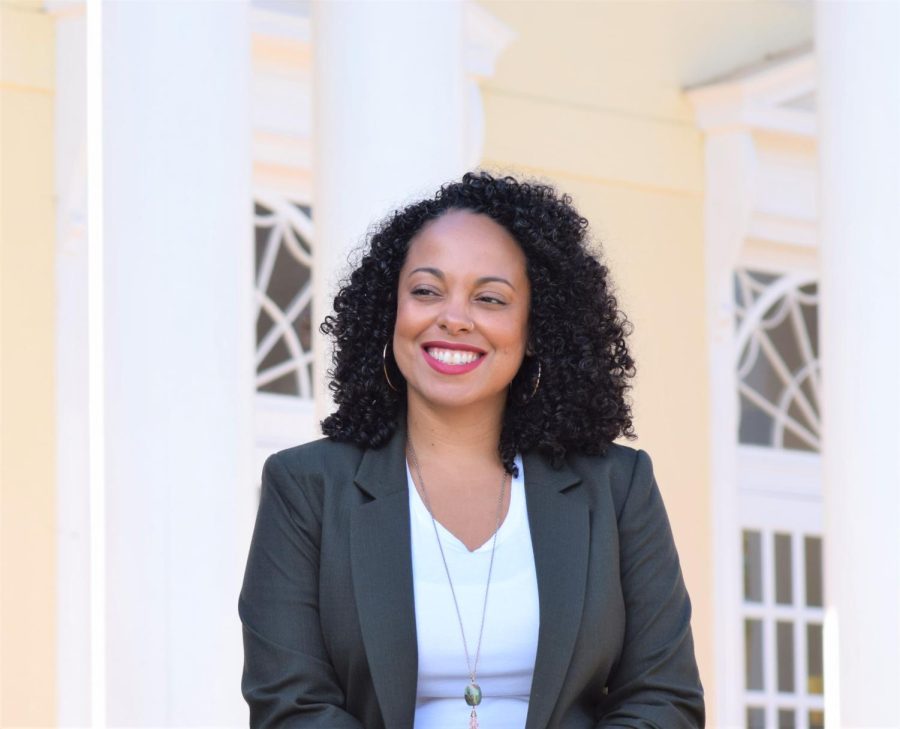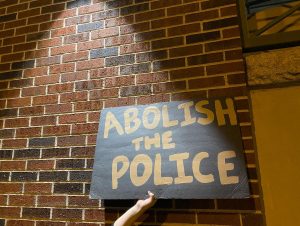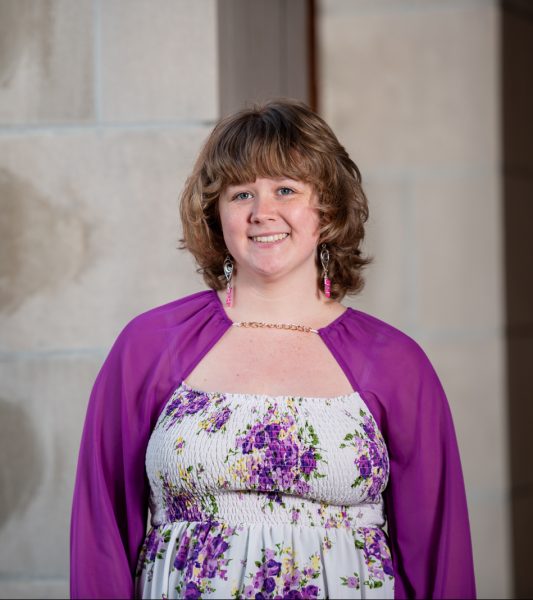Deacon Profile: Brittany Battle
Dr. Brittany Battle is a scholar-activist and an assistant professor in the Sociology Department at Wake Forest University.
Courtesy of Sociologists for Women in Society
Battle teaches courses on social justice in the social sciences, reimagining the criminal legal system and courts and criminal procedure.
January 28, 2022
Dr. Brittany Battle is a scholar-activist and an assistant professor in the Sociology Department at Wake Forest University. Her research interests include social and family policy, courts, social justice and carceral logics. She teaches courses on social justice in the social sciences, reimagining the criminal legal system and courts and criminal procedure. She is the co-founder of Triad Abolition Project, a grassroots organization based in Winston-Salem, NC, working to dismantle the carceral state.
Can you tell me a little bit about your background and what brought you here to Wake Forest?
I am originally from New Jersey – South Jersey, at the beach. I have now been at Wake Forest for three years. I did my PhD. in Sociology at Rutgers New Brunswick, which is close to New York City. Before that, I completed a master’s in African American Studies at Temple University in Philadelphia. I did my undergrad at University of Delaware, where I was a triple major in Sociology with a long society concentration — Women’s Studies and Black American Studies. Now, I’m here, and I love being at Wake. I love the students, and I love the opportunities. I get to teach courses that are really interesting to me, and I also do work in the community. I’m the co-founder of a grassroots organization in Winston-Salem called the Triad Abolition Project, and we do work to dismantle the carceral state. So, I’m really happy to be in Winston-Salem at Wake Forest.
What work do you do here at the university?
I teach every semester, and I usually teach the Principles of Sociology class, which is our introduction to sociology. I also teach one of three seminars that I kind of cycle through. One is my Courts and Criminal Procedure class, where we really look at how the law is racialized and what the implications of that are. The second is a course on social justice in theory, method and practice, which I’m teaching right now. In that class, we take a look at social justice works inside and outside academia.
The third class that I teach is on abolition and transformative justice, where we take a look at some of the theories, practices and experiments that have been done, and reimagine how we pursue justice. We also ask if justice is something that we can even pursue and what that looks like both in academia and on the ground in the community.
Can you talk a little bit about the Triad Abolition Project and how you came to be one of the cofounders?
The Triad Abolition Project was founded in June 2020. I founded it with my comrade, Dr. Bailey Pittenger, who is on the faculty at the UNCSA high school program. Dr. Pittenger is also a Wake Forest graduate — a Double Deac. She did her undergrad at Wake and also a Master’s at Wake.
We started it that summer, as the uprisings were getting started, because we really wanted to bring a strictly abolitionist perspective to the justice work and the liberation work that was being done in Winston-Salem.
Then we began a 49-day occupation of Bailey Park in downtown Winston-Salem on July 15 of 2020. There, we were demanding policy changes in relationship to the murder of John Neville in the Forsyth County Detention Center by sheriff’s deputy officers. So, that was how we got started.
What has it been like for you to watch this project grow over the last year?
TAP has been one of the most beautiful, humbling and transformative experiences of my life. The people that I’m working with, building community with, and really dreaming about a better future with are amazing. The ways people have grown and developed their skills and their ideas and perspectives around transformative justice and abolition has just been beautiful to watch. We’ve been able to, with the solidarity of comrades throughout Winston-Salem and Forsyth County, achieve some pretty important policy changes. We’ve also seen, I think, cultural shifts in the way that people think about justice.
One of the things that we did last year was a workshop series in the summer, which we’ll be doing again. That was partially funded by the Humanities Institute at Wake Forest. We had community members — including faculty, staff and students — participate in bi-weekly sessions. We really just dug into the practice and promise of abolition and transformative justice. So, we’ll be doing that again this summer with a focus on care work and disability justice. We’re really excited about the possibility that this will be another transformative experience for our community.
How has this experience impacted your work and relationships here at Wake Forest?
It’s definitely been a source of relationship-building. I have a lot of students that are curious about abolition taking my courses, that reach out for conversations and that do independent research that explores abolition. My work in the community has definitely helped me be able to kind of support students who are exploring new ways to think about harm reduction, collective care and those types of questions. And certainly, I bring the practice of abolition into my courses and the ways that we build community. In my courses, I think it’s really important for us to be all in it together in a real tangible way and think about the ways that we can support each other — particularly as we continue to navigate this global pandemic.
Are there any additional projects you are working on currently with which students can help?
Yes, I’m often looking for students who are interested in collaborating on these research projects. I have several ongoing projects right now. I’m currently running a social justice research lab as a Research with Faculty course credit. Right now, I have seven students in that social justice research lab. I pretty consistently have opportunities for students to come work on projects every semester and in the summer. They are typically about important social justice issues and racial justice issues, both locally and nationally. If students are interested, they should definitely reach out.
In your time here at Wake Forest, as well as your time working on these projects, what do you want to be your impact and legacy on campus?
That is such a big question for me so early in my career. I hope that I’m able to just contribute to building stronger communities and stronger infrastructures for care, whether that’s at Wake Forest or in the community. Through my research on social movements — or the eviction crisis, or the child support system, or the teaching that I do — I just hope that I can contribute to folks being more connected and having more access to care and support.
















